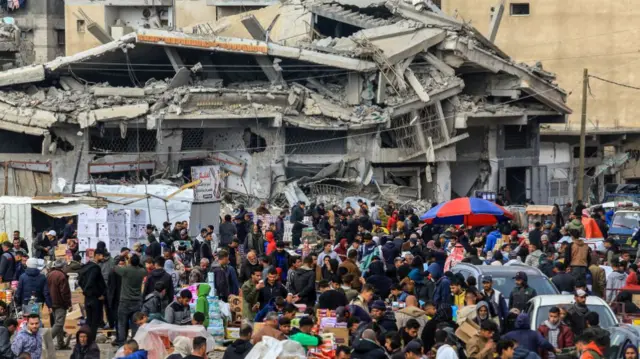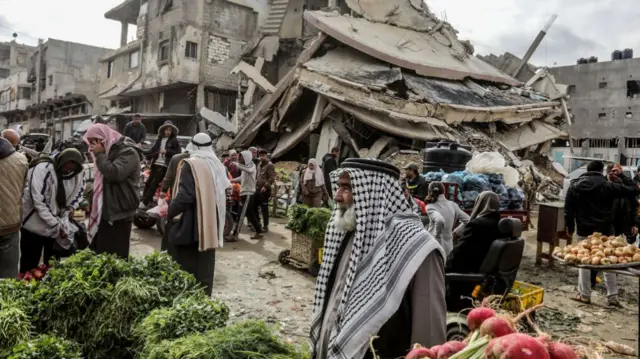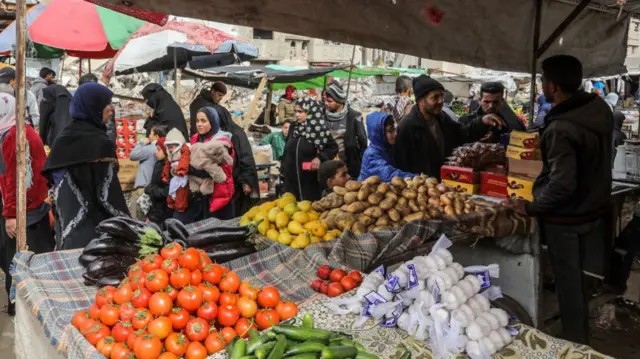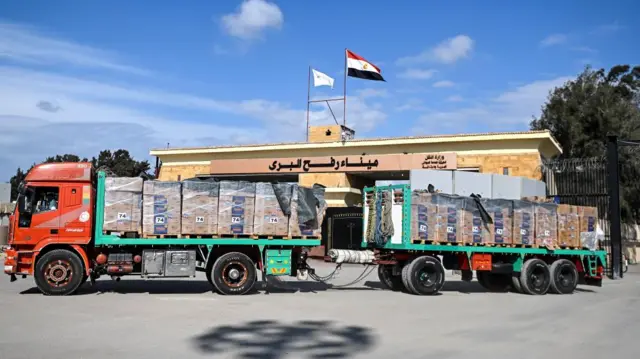Palestinians resume daily life in war-torn Khan Younis
Palestinians resume daily life in war-torn Khan Younis
In Khan Younis, southern Gaza, Palestinians have been making a return to everyday activities amid the uncertain longevity of the ceasefire between Israel and Hamas.
Khan Younis was targeted by heavy bombardment by Israeli forces, bearing the brunt of the military action, BBC Verify found last year.
Getty ImagesPictures emerging from earlier today show dozens of people attending a market against the backdrop of a building destroyed during the Israel-Hamas war
Getty ImagesAccess to food and other resources in the enclave have been scarce during the conflict, but as part of the ceasefire agreement Israel has allowed aid to enter the Strip
Getty ImagesMany are worried fighting might resume in the region if the ceasefire collapses
Getty ImagesBut for now, the availability of fresh fruits and vegetables is bringing a smile to many Gazan people
Egypt and Qatar working to salvage ceasefire and prevent escalation
A senior Egyptian source tells the BBC that Egypt and Qatar are "intensifying their diplomatic efforts" to salvage the Gaza ceasefire agreement.
The source says that their mediators are working to find a solution that ensures the balanced implementation of the agreement and maintains calm to prevent a new escalation.
"The continuation of the ceasefire is in everyone’s interest, and we warn that the collapse of the agreement will lead to a new wave of violence with serious regional repercussions."
High level communications are ongoing, the source adds, as Cairo and Doha are urging all parties to adhere to the terms of the agreement.
Gaza is receiving more aid than Hamas claims
EPABy Nick Eardley
The threat of the ceasefire collapsing was raised on Monday - when Hamas said it was postponing Saturday’s hostage handover.
In a statement on Telegram, the Gaza Government Media Office made several claims.
One was that aid pledges had not been kept. The statement claimed 12,000 aid trucks had been due to enter the strip so far during the ceasefire, but the actual number had been 8,500.
Throughout the conflict, the BBC has used UN numbers.
It says more aid is getting in than Hamas claims. Aid chief Tom Fletcher said last week that 10,000 lorries had entered the strip during the ceasefire - six days before Hamas provided its lower figure.
The UN no longer provides a daily update and it’s unclear why, but a spokesman said on Tuesday that humanitarian operations had been scaled up “significantly”.
Israel also has a body responsible for humanitarian initiatives - COGAT. It has claimed a higher figure of 12,600 trucks up to 8 December.






Comments
Post a Comment